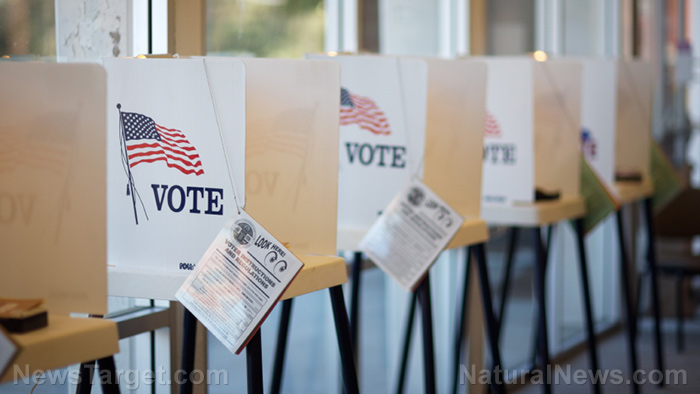Court rules against University of Iowa for banning Christian student organization
03/29/2021 / By Arsenio Toledo

A court has ruled that officials from the University of Iowa (UIowa) violated the constitutional rights of their students after the university banned a student organization for requiring its leaders to be Christian.
The legal battles began in 2017 when UIowa officials subjected the student business organization known as Business Leaders in Christ (BLinC) to an investigation. The university ultimately demanded that the group “revise” its leadership criteria after a student complained about being denied a leadership position. UIowa officials argued that the club violated the university’s human rights policy by discriminating against a student.
The student who filed the complaint against BLinC was openly gay. He felt that he had been discriminated because of his sexual orientation.
It wasn’t the case, but the club’s rules require its leaders to be Christian and to believe in the basic tenets of the Christian faith. (Related: UCLA law professor freely admits his university “leans heavily to the Left” and cares little for promoting “conservative, religious” diversity.)
In the latest court battle, the Eighth Circuit Court of Appeals ruled in favor of BLinC. The court said that the university was selectively enforcing its policies and discriminating against religious student organizations.
“The law is clear: State organizations may not target religious groups for differential treatment or withhold an otherwise available benefit solely because they are religious. That is what happened here,” wrote Circuit Judge Jonathan A. Kobes. “The individual defendants may pick their poison: They are either plainly incompetent or they knowingly violated the Constitution. Either way, they should not get qualified immunity.”
In 2020, a lower court ruled that UIowa’s decision to forcibly disband BLinC was illegal and that the Christian student organization must be allowed back on campus. The Eighth Circuit Court of Appeal’s decision affirmed the ruling and went further by holding the university officials who led the order to ban BLinC personally responsible for the uneven application of the school’s nondiscrimination policy.
UIowa attempted to cover its tracks by banning other student religious organizations
BLinC was represented by Becket Law, a nonprofit public interest law firm that defends groups whose religious liberties are threatened.
Becket pointed out how UIowa unevenly enforced its anti-discrimination policies. It allowed many other student religious organizations to select their leaders on the basis of being faith-compliant. The university also allegedly encouraged other groups, such as fraternities and sororities, to select their leaders based on characteristics that would have violated the nondiscrimination policy if it was properly enforced.
The law firm also pointed out that the university continued to discriminate against student religious organizations even after a federal judge warned UIowa against doing so. University officials “went on a deregistering spree to cover their tracks.” Several Christian, Sikh and Muslim-oriented student groups were banned from campus for reserving their leadership positions for students who shared their religious affiliations.
“It’s deeply ironic that school officials tried using the university’s nondiscrimination policy to discriminate against religion,” said Becket Vice President and Senior Counsel Eric Baxter. “They knew this was wrong, yet they did it anyway.”
BLinC and Becket welcomed the decision of the Court of Appeals. The law firm applauded it for recognizing that UIowa violated BLinC’s First Amendment rights.
“We’re pleased the court has recognized that such blatant religious discrimination brings personal consequences,” said Baxter.
BLinC helps train UIowa business students to stay true to their faith when they enter the workplace.
“BLinC takes good students and makes them better by strengthening their resolve to remain true to their moral compass in the cutthroat business world,” said Baxter.
“Any wise university would be thrilled to have them on campus, but the University of Iowa tried hounding them off instead. Fortunately, the First Amendment protects their right to remain on campus on the same terms as every other student group.”
Learn more about other instances where universities violated the First Amendment rights of their students and employees by reading the latest articles at FirstAmendment.news.
Sources include:
Tagged Under: Anti Christ, anti-religious bigotry, bias, Business Leaders in Christ, Christian discrimination, Christian oppression, Christianity, free speech, freedom, freedom of religion, intolerance, iowa, Liberty, religious freedom, Tyranny, University of Iowa
RECENT NEWS & ARTICLES
COPYRIGHT © 2017 FREEDOM NEWS





















